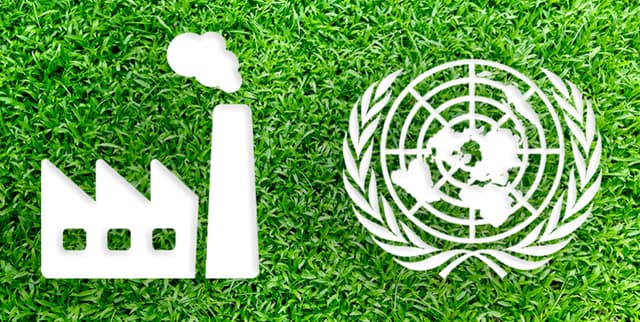ONU Sustainable Development Goals (SDG) Country Data
Data Science and Analytics
Tags and Keywords
Trusted By




"No reviews yet"
Free
About
Aggregated data from numerous United Nations Sustainable Development Group (UNSDG) indexes are used to assess the sustainability of various countries' development. This collection of information is ideal for calculating custom sustainability scores, identifying correlations between different indexes and countries, and analysing trends over time. It supports clustering by region and country to uncover developmental patterns.
Columns
- dt_year: The year of the record.
- dt_date: The year in a date format.
- country: The name of the country.
- region: The ONU-defined region for the country.
- level_of_development: The ONU-defined level of development for the country.
- greenhousegas_emissione_mtco2equivalent: Total annual greenhouse gas (GHG) emissions.
- total_government_revenue_proportion_of_gdp_perc: The proportion of a country's total GDP that comes from government revenue.
- fdi_inflows_millionusd: Foreign direct investment (FDI) inflows in millions of USD, intended to support sustainable development in developing nations.
- annual_growth_rate_perc: The annual growth rate of real GDP per capita.
- proportion_of_population_with_primary_reliance_on_clean_fuels_a: The percentage of the population primarily using clean fuels and technology for cooking, heating, and lighting.
- mortality_rate_perc: The probability of dying between the ages of 30 and 70 from cardiovascular disease, cancer, diabetes, or chronic respiratory disease.
- renewable_energy_share_on_the_total_energy_consumption: The percentage of total final energy consumption derived from renewable sources.
- co2emissions_from_fuel_combustion_in_millions_of_tonnes: CO2 emissions from fuel combustion, measured in millions of tonnes.
- fossilfuel_subsidies_consumption_and_production_billionusd: The amount of fossil-fuel subsidies (both production and consumption) relative to GDP, in billions of USD.
- randd_expenditure_proportionofgdp_perc: Research and development (R&D) expenditure as a proportion of GDP.
- national_action_plans_as_priority_national_policies: The number of countries that are developing, adopting, or implementing policy instruments for sustainable consumption and production.
- number_of_companies_publishing_sustainability_reports: The count of companies publishing sustainability reports.
- education_for_sustainable_development: A measure of the extent to which countries incorporate Global Citizenship Education (GCED) and Education for Sustainable Development (ESD) into their education systems.
- enhance_policy_coherence_for_sustainable_development: An indicator of coherence between various policies covering the dimensions of sustainable development.
- land_degraded_over_total_land_area: The proportion of land that is degraded relative to the total land area.
Distribution
- Format: Tabular (CSV)
- Size: 646.16 kB
- Structure: 5,176 rows and 20 columns. The data is expected to be updated annually.
Usage
This data is well-suited for a variety of analytical tasks. It can be used to calculate a custom overall sustainability score for different countries. Analysts can explore correlations between various socio-economic indexes and national development metrics. The information is also valuable for clustering countries by region or development level to identify common challenges and successes. Furthermore, its time-series nature allows for the examination of developmental evolution over the years. Data visualisation is another key use case.
Coverage
- Geographic: Global, covering 259 unique countries and territories.
- Time Range: The data spans from 2002 to 2021.
- Demographic: Data is aggregated at the country level.
License
CC0: Public Domain
Who Can Use It
- Researchers and Academics: Can use the data to study global development trends, policy effectiveness, and the interplay between economic, social, and environmental factors.
- Data Scientists: Ideal for building predictive models, performing cluster analysis, and finding correlations between sustainable development indicators.
- Policy Analysts and Government Officials: Can benchmark national performance against global and regional trends to inform policy-making.
- Students and Educators: A valuable resource for projects and coursework related to economics, data visualisation, and international studies.
Dataset Name Suggestions
- Global Sustainable Development Indicators
- UN Country Sustainability Metrics (2002-2021)
- National Development and Sustainability Indexes
- ONU Sustainable Development Goals (SDG) Country Data
- World Sustainability & Economic Indicators
Attributes
Original Data Source: ONU Sustainable Development Goals (SDG) Country Data
Loading...
Free
Download Dataset in CSV Format
Recommended Datasets
Loading recommendations...
